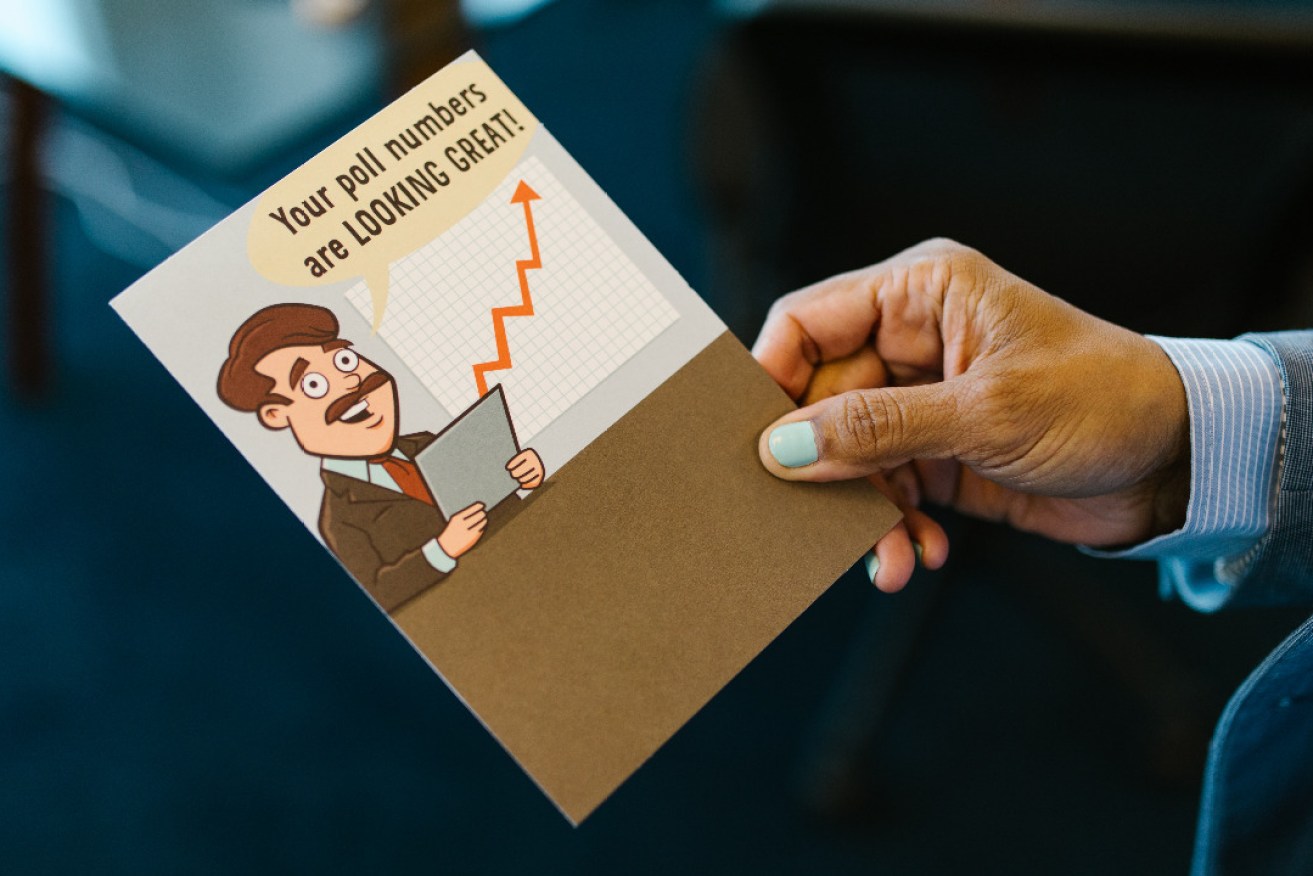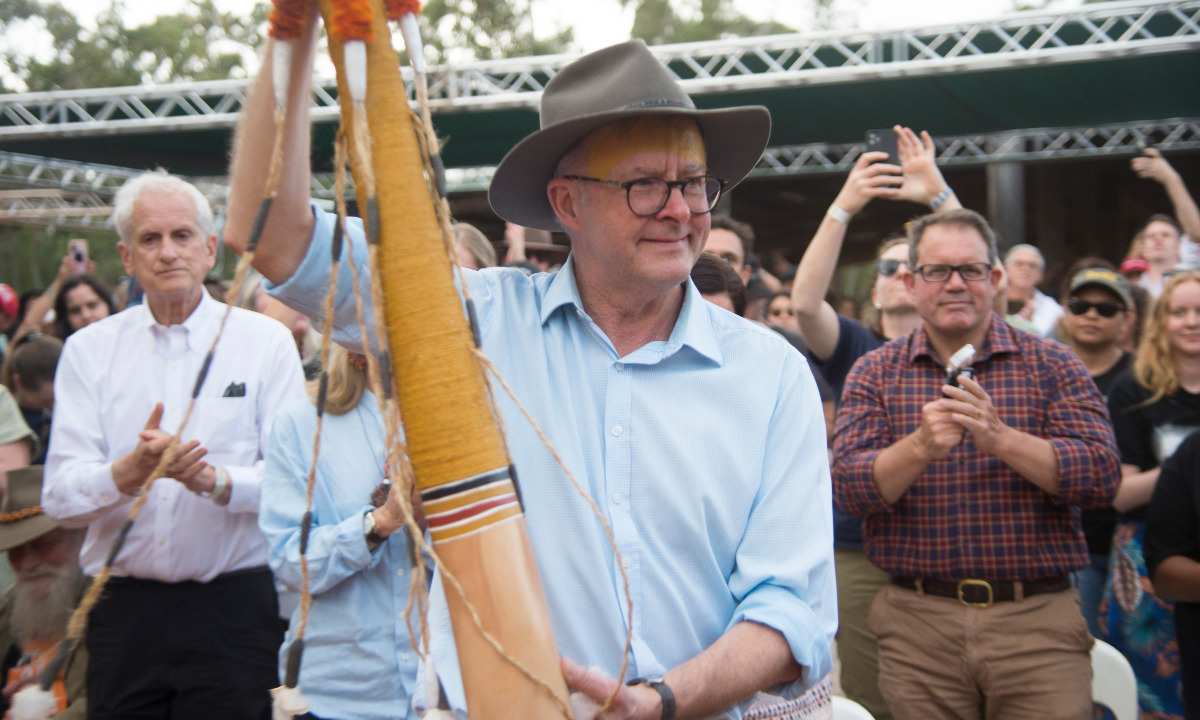Conspiracy crackpots fuelling opinion poll denial
With the Voice referendum sparking a spate of opinion poll denial and disinformation, Matthew Abraham explores the political obsession with “the numbers”.


Politicians sometimes doubt polling - except when it shows everyone loves them. Photo by RDNE Stock project/pexels
One of the biggest porkies politicians like to tell has to do with opinion polls.
“The only poll that counts is the one on election day,” they’ll intone, when asked why the opinion polls are showing their party in more doo-doo than a Bolivar duck.
Don’t believe a word of it.
If the only poll that counts is the one on election day, when real people actually vote for real people, ask yourself this: “Why do political parties spend so much money on opinion polling?”
If you think the answer is “for fun”, think again.
Politicians have an unhealthy addiction to opinion polls, poring over the fine print in the published tables, sometimes even using them as a catalyst to dispose of perfectly good leaders.
That’s what the South Australian Liberals did with former Premier Dean Brown back in 1996, junking him based on a single poor opinion poll.
Political parties also conduct their own polling and “focus group” research to gauge the temperature of the voting public, especially during an election campaign, and either tweak their messaging, or abandon policies that are proving to be real stinkers.
They don’t always believe what the polls are telling them, however, unless the numbers show that the public adores them. And that’s when poll denial sets in.
For more than a year, the reputable opinion polls have all been tracking the mood ahead of the October 14 referendum to change the Australian Constitution to both recognise Aboriginal and Torres Strait Islander people as the First Peoples of Australia and permanently entrench an Indigenous voice to parliament.
And they’ve all been going in the same direction – down, down, down.
He argues that poor reporting of polling by the media is partly to blame for poll denial.
The two-answer support for the referendum – the clear Yes or No answers – has seen backing for the voice track down from a high of around 67 per cent in the middle of last year to a new low of 36 per cent in the Newspoll published last Monday, conducted between September 18 and 22.
Feisty Tasmanian poll analyst Dr Kevin Bonham – his website quotes his critics including one saying he has an “ego as big as Texas and about as flexible as a steel bar” – has been tracking the aggregate of all the published voice polls.
His two-answer estimate as of Monday this week has Yes trailing No by 41.5 per cent to 58.5 per cent, a further combined fall of almost one percentage point over the previous fortnight.
Despite a campaign war chest bulging with millions kicked in from big corporations, and with the referendum now barely two weeks off, the Yes vote shows no signs of a resurrection.
These polling outfits are Newspoll, Resolve, Essential, JWS, Freshwater, Morgan and Redbridge.
Of these, the most-watched are The Australian’s Newspoll, The Guardian’s Essential, Resolve run in the Sydney Morning Herald and The Age and the emerging Redbridge, conducted by Kos Samaras.
True, each poll only gives us a snapshot of what people may be thinking at that point in time.
But an aggregate of polling results, and the long-term trend lines of that aggregate, from across the mainstream media spectrum, paint a dismal picture for the Yes camp.
This has led to understandable frustration and, on the outer fringes, denial and conspiracy theories about modern polling.
It expresses itself something like this: How can the polls be right when everyone I know says they’re voting yes?
The value of opinion polls is that they don’t tell you what people who agree with you are thinking – they tell you how people who don’t agree with you are thinking.
As somebody who has spent a couple of decades in talk radio, where ratings results published every six weeks can mess with your head, ego and career, it’s often a very unhappy business finding out how many people don’t like you.
Helped along by the wisdom of online conspiracy crackpots, poll denial during the Voice campaign is running hot.
Sick of having to block cranks on Twitter, Bonham has done the public a service by creating his Australian Polling Denial and Disinformation Register – a useful and entertaining read.
With the Yes vote trailing by what he describes as a horrendous but not unsurprising margin, he says the number of people “recycling and reciting the same unchecked viral false claims has become so large that it is almost impossible to manage a response to them”.
He argues that poor reporting of polling by the media is partly to blame for poll denial.
“Polling itself is blamed for the way that media sources misinterpret polls (often to play up false narratives that an election is close, but also sometimes to pander to an audience, or at times through more innocent errors),” he says.
“This confusion between polling and interpretation means that polls that may have been accurate are falsely blamed and unjustly distrusted, while media figures who have wilfully or cluelessly misinterpreted the polls get away scot-free.”
Fossicking around behind the headline numbers of the polls unearths some unexpected insights – certainly unexpected for those who expected a Yes vote to be a doddle when Prime Minister Anthony Albanese unveiled his “simple and clear” referendum question at the indigenous Garma Festival in the Northern Territory in July last year.
The thinking then was that young voters and women would carry the voice home.

Prime Minister Anthony Albanese at the Garma Festival in 2022. Photo: Aaron Bunch/AAP
The Australian’s political editor Simon Benson reports that Monday’s Newspoll shows the swing to the No vote has occurred “across almost all age groups and other demographic indicators but is most pronounced among women and younger voters who have been the strongest supporters of the voice to date”.
One reason for this may be the No campaign’s spring offensive into the social media’s youth space, especially TikTok, dominated by the 18-24 age group, closely followed by the 25-34 “oldies”.
The No camp’s slick Fair Australia videos claim seven of the “Top 10” videos watched on TikTok’s main voice “hashtag”, while its 47,000 followers easily outstrip the combined Yes23 and Uluru Statement groups with around 9000 followers.
Now, for the first time since his Garma speech, Albanese is contemplating what life will be like if his “simple and clear” voice goes down the gurgler, telling The Guardian’s political editor Katharine Murphy that even if it fails the referendum will still have been “positive”.
“I think the awareness and consciousness of Indigenous affairs has been raised to the point whereby you’ll never again have – I don’t believe – a situation where you won’t have Indigenous affairs raised on the floor of the parliament,” he says.
“For a long period of time, it wasn’t front and centre of issues.”
That does sound like one of the arguments from the No case, so perhaps he’s paying attention to the polls too.
On poll denial, Bonham warns that “believing everything that is claimed to be a poll result is even worse than believing none of them”.
Quite true. The great thing about our strange little democracy is that we all get to make our own decisions.
Unlike our political leaders, we can do that without the help of opinion polls.
Confession: I nicked the duck in the sewage farm line from the Australian Financial Review’s brilliant Joe Aston, although he used a blunter word for doo-doo when recently describing the Qantas board’s woes.
Matthew Abraham is InDaily’s political columnist. Matthew can be found on Twitter as @kevcorduroy. It’s a long story.




